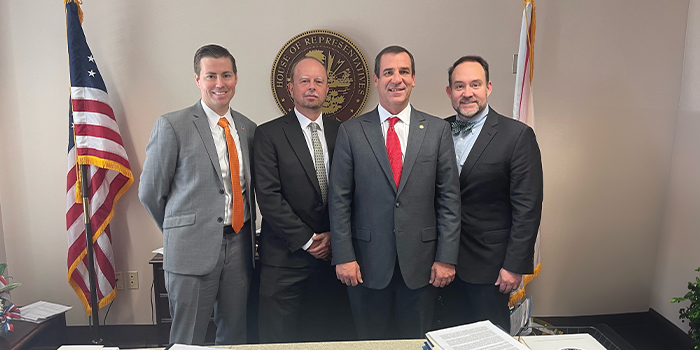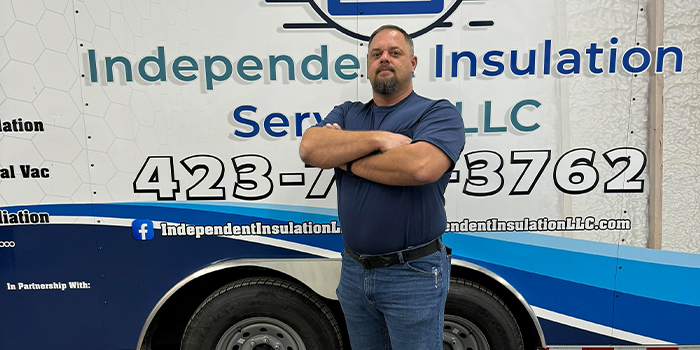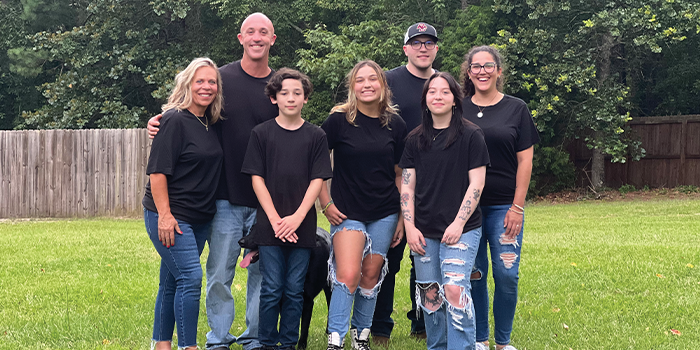
Huntsman Building Solutions Incentivizes Industry Growth via Effective Policy Measures

SPRAY FOAM MAGAZINE – The benefits of spray foam speak for themselves. Spray foam insulation reduces energy bills, increases resiliency, and improves home comfort. This performance is unmatched in the insulation industry, which is driving demand for spray foam across the country. While builders, property owners, and architects are pushing the industry forward, it is important to ensure laws and regulations are working for, not against, the industry.
In the U.S., energy efficiency policy is mainly left to the individual states. While the federal government influences trends, such as clean energy, climate policy, and reducing building emissions, individual states implement policies and legislation to achieve these goals. Each year, states consider hundreds of new bills and regulations that impact the construction of commercial and residential buildings. Changes to policy directly impact the spray foam insulation value chain. Contractors should engage with their state and local governments to ensure laws and regulations do not present barriers to the installation of spray foam insulation.
As a leading manufacturer of spray foam, Huntsman Building Solutions (HBS) is taking a defining role in the outreach to state and local government officials. Outreach includes building long-term relationships with influential law makers, education, and support during the development of new legislation. This process culminates in HBS taking public positions on bills that impact spray foam insulation.
In 2023, HBS successfully supported bills in California, Florida, North Carolina, and Utah.
In California, HBS supported SB837. This bill requires the California Energy Commission (CEC) to consider redefining “conditioned space” to include unvented attics. This bill was developed by Senator Archuleta after HBS identified a flaw in California’s energy code which improperly models the energy performance of unvented attics. Now that Governor Newsom signed the bill into law, HBS will engage with the CEC to support the Commission during the development of the 2025 Building Energy Efficiency Standards.
Florida is facing a homeowners insurance nightmare. Premiums are skyrocketing and insurance companies are leaving the state. When promoting the energy efficiency benefits of spray foam insulation in Florida, HBS highlighted the Sand Palace of Mexico Beach and resiliency as a secondary benefit of spray foam. Senator Martin and Representative Griffiths expressed interest in helping homeowners protect their homes and reduce their homeowner’s insurance premiums. Florida had an existing statute that provides an insurance premium reduction for a home with certain hurricane protections. Sen. Martin and Rep. Griffiths introduced SB 594 and HB 799, which amended the statute to include wind uplift prevention. With Governor DeSantis signing the bill into law, homes with spray foam insulation on the roof deck will see lower insurance premiums in Florida.
Lawmakers in North Carolina and Utah were interested in the benefits of unvented attics. HBS educated lawmakers on the energy efficiency boost from moving insulation to the roof deck and installing HVAC equipment and ductwork inside the conditioned space. In response, lawmakers introduced bills to amend their state’s energy codes to incentivize the use of unvented attics. The amendments effectively lowered the R-value requirements from R-38 or R-49 in an unvented attic to between R-20 and R-30, pending which of the state’s climate zones you are in.
While much of HBS advocacy efforts require state level action, from time-to-time there are also national initiatives the company supports. One of the most recent successes was the Inflation Reduction Act’s 25C Energy Efficient Home Improvement Tax Credit, which provides homeowners with a tax incentive for investing in certain energy efficient retrofits, including those involving spray foam insulation. HBS efforts focused on ensuring the tax credit required not just insulation enhancements but also air sealing, something we all know spray foam excels in. This is now in effect and, while homeowners are the ones receiving the tax credit, it also benefits contractors who can educate homeowners on this benefit when speaking to them about possible insulation upgrades in their home.
HBS is also a founding member and current board member of the Institute for the Building Envelope (IBE), the industry trade association promoting innovative, multifunctional materials that can increase energy efficiency, safety and comfort. Through its participation with IBE, HBS collaborates with key industry stakeholders, including builders, contractors, and other manufacturers, to help push smart legislation forward.
All of HBS’ governmental engagement - whether state-based, national or in collaboration with important industry groups like IBE - are a reflection of one thing. We are here to support the health and growth of the industry for the long-term. As a leading manufacturer, it’s not only important for us to drive innovation and performance in our spray foam product line. We understand we also share a responsibility to invest in the industry and to protect and enhance contractors’ ability to conduct business in their local markets.
Still, we are much more powerful as a collective industry voice. State lawmakers in particular benefit from the perspectives of the actual folks doing business in their states. Legislators need to hear how bills will impact you and your customers. A great way to get started in being a grassroots participant is to join Spray Foam Champions, whose goal is to help our contractors publicly advocate for spray foam insulation to make it the preferred consumer choice and grow your businesses.
Together we can all make sure that spray foam remains an available option to our industry’s customers, no matter what state.
About the Author: Doug Brady is chief strategy officer for Huntsman Building Solutions, a global leader in spray polyurethane foam. Visit www.huntsmanbuildingsolutions.com or contact Doug at dbrady@huntsmanbuilds.com for any inquiries.
For use by SprayFoamMagazine.com & Spray Foam Magazine













